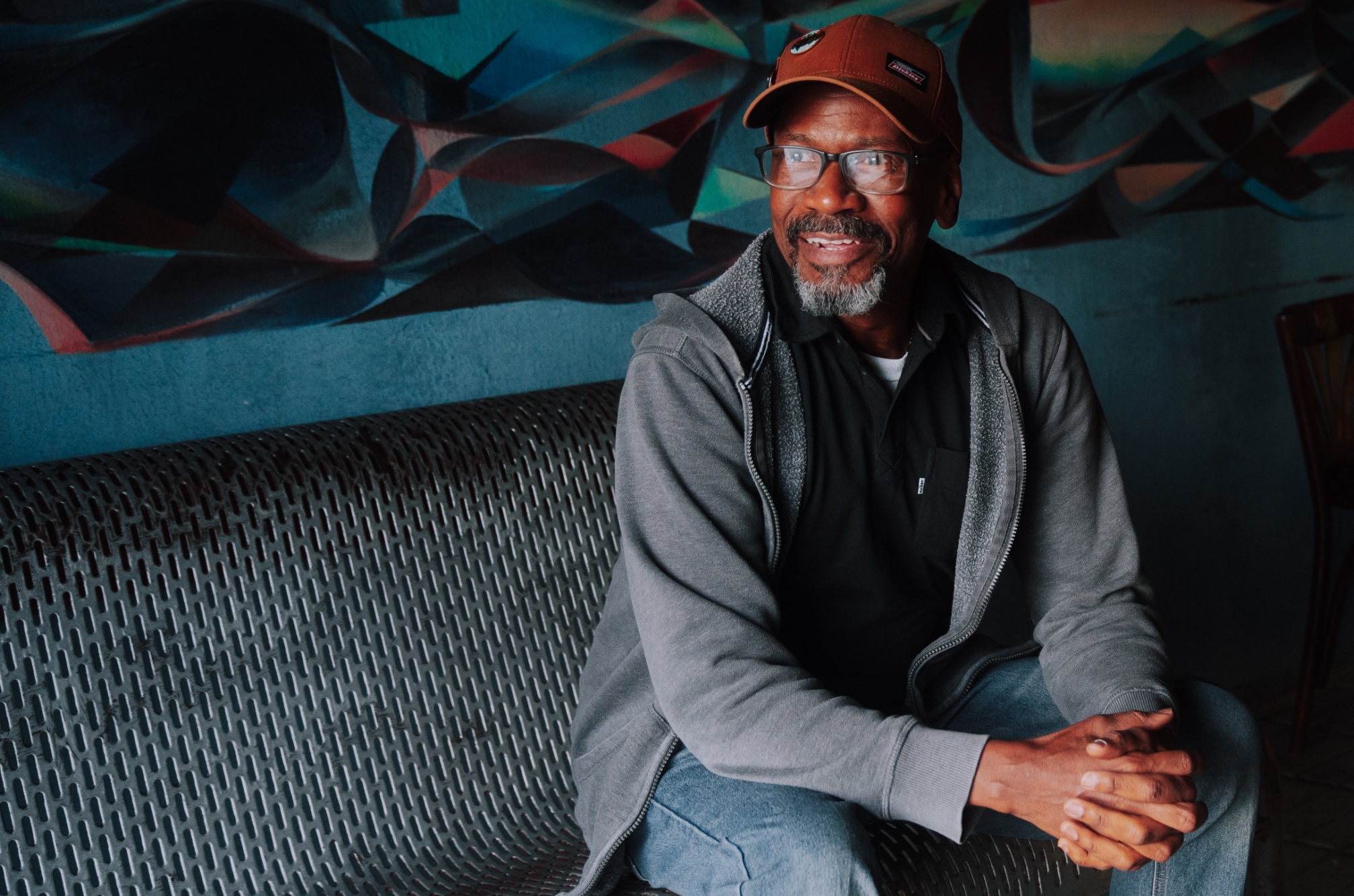 Interviews
Interviews
A night of deep beats and timeless wisdom with Larry Heard
Seoul-based producer Themba Searles digs into topics of musicianship, the business and the life of the man known as Mr. Fingers
It’s Saturday night in Hongdae, an area famous for its youthful nightlife and art. From the packed rooftop of Modeci, the sound of classic house music emanates from two stages, one on the rooftop and the other downstairs, as the venue begins to fill for the Korean debut of Larry Heard. Into the early hours of the morning, he performs a heavy marathon set, effortlessly stitching together soulful house classics and alien frequencies, showing his breadth through his almost 40-year career.
Hours earlier, I had the pleasure of speaking to the artist sometimes called ‘Mr. Fingers’ inside the sunlit venue, just after arriving from Japan. We spent time talking about his impressions of playing in Asia, his relationship with major labels, the modern musical landscape, and what separates producers from DJs. Sitting by a sunlit window, he gives off a quiet confidence that can only be earned with years of experience.
He speaks softly, and his answers are gracious, offering more insight and wisdom than he probably intends.
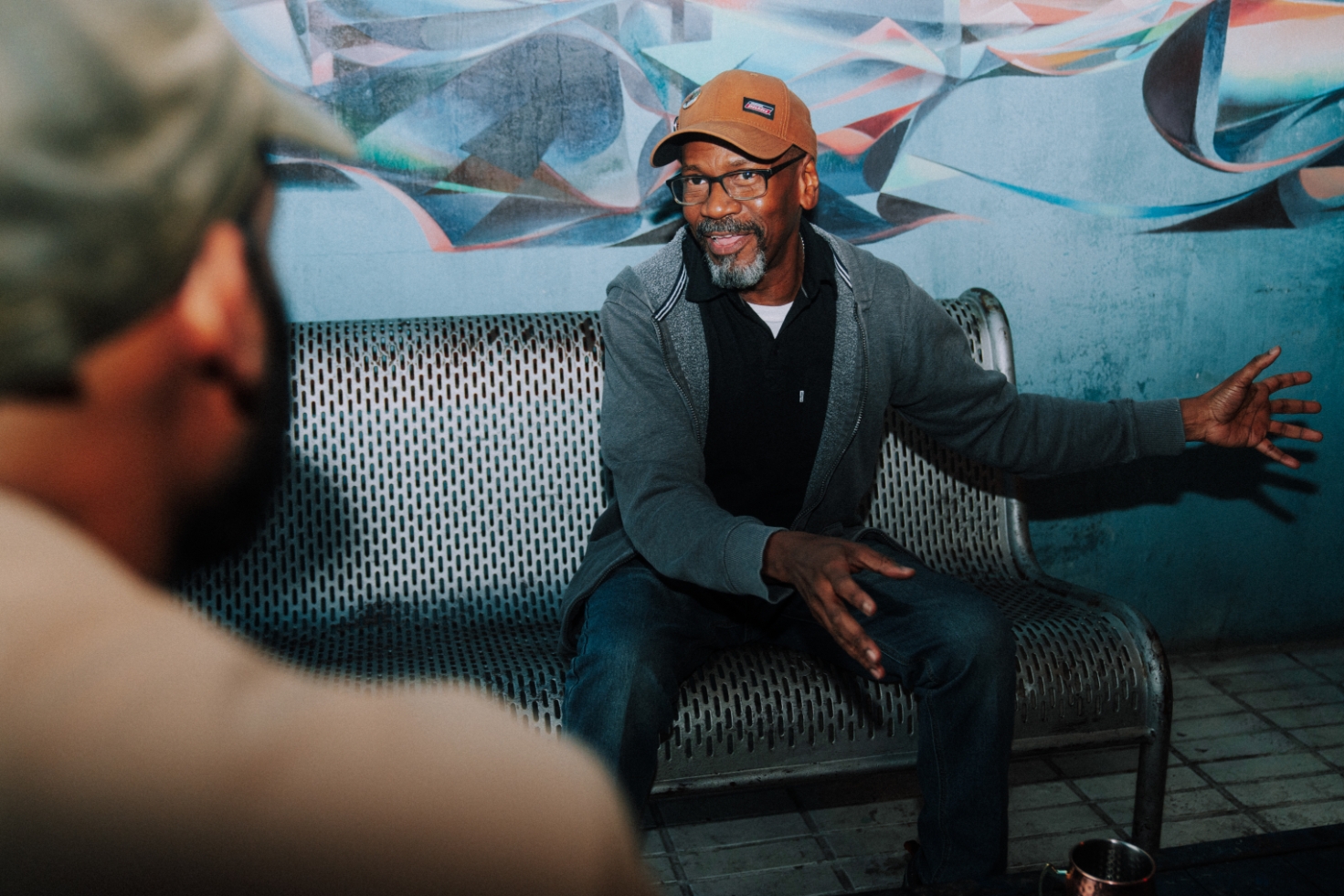
For you to be travelling from a place like Chicago to Asia to play music, how does it feel bringing your brand of music to this continent?
Well, I guess the first thing is that you're honored that they ask you. It's not like I'm coming saying, hey Korea, I'll bring you something. No, they invite you. They obviously have a curiosity about it. Which is great. It's amazing. It would be totally different from that where no one is interested.
Where else in Asia have you played?
Japan many times, Indonesia, Hong Kong, slowly moving around.
Do you find the crowd responses to be any different from in other continents, maybe in America?
Japan—they're always like, they're literally studying what you're doing. They're that attentive and focused-in like that. Which is cool. They have so much passion. They stand in place for 6 to 8 or 10 hours to enjoy these kind of events. Unlike in America where we just wander everywhere. As soon as anything falls off, we kind of go away. We get distracted.
They get a spot. They're stuck there the whole night. At the end of the night, they have a CD or album or something that they wanted you to sign. So, you stood there the whole time with the intent of getting this album signed. You don't see that kind of personal passion, in much of anything.
Listening to your music, I hear a lot of influences from different genres, and while influences aren't always intentional, what is your way of finding and listening to new music these days?
It’s just like Russian Roulette. iTunes or Traxsource or Beatport whatever it is and hope you find something. Because that's really pretty much it. Sometimes, you can get to different people's charts and it is more than just self-serving and 10 of their own songs.
Like, okay well. That’s pretty biased, I think. So, you just kind of find it as you're able to. And maybe through friends and everything else, they'll mention something or play something and say, what's that?
So, the same old thing as forever and ever and ever as far as finding out about music. The one big difference is the sheer volume of music that's coming out. Especially in the digital world. There's over 100,000 tracks per day. Who's got time to listen to those tracks? Nobody.
So, that's the scary aspect of it. Of course, you get a lot of people asking for advice on how you approach things. I don't know how you approach standing out over 122,000 tracks that same day that came out. Other than making yours as powerful as possible, as hot as you can. Come out newborn, I don't know what's going to happen. The sheer volume, you're just going to get swallowed up. So, that's a really hard aspect for all of the people trying to break into it. So many people doing the exact same thing. Sometimes they may even sound like the exact same thing as well. So, you've got to carve out a sound that's unique to yourself. Where people can start identifying you outside of all the other people. It may sound like the exact same thing to an untrained ear.
A lot of people call you the inventor of deep house music. What makes house music ‘deep?’
I don't know. Because they're the ones saying it. They put it on you. Everybody asks me to explain it. I'm not the one to explain it. Even the ‘house music’ term. Many, many, literally decades of people asking what does house music mean? I didn't define it. Someone else said that. And now you're asking me to answer, respond to their statement. I can't really do that.
The only thing I can relate it to is people making tracks inside their houses and that was it. It was just kind of an identifier for people at that time. Why people hadn't evolved away from that, I don't know. But that's what it was initially. Because you had disco, I guess, at that time. And of course all the soul, r’n’b, rock, pop. And it was kind of something to kind of identify this newer strain of music that was coming around that some local artists were doing.
You’ve had a very long career. Does it get any easier?
No. I mean the hardest thing is motivating yourself. Feeling like you're kind of not repeating yourself or being redundant. But hopefully I'm still trying to do what I can. Just to be involved.
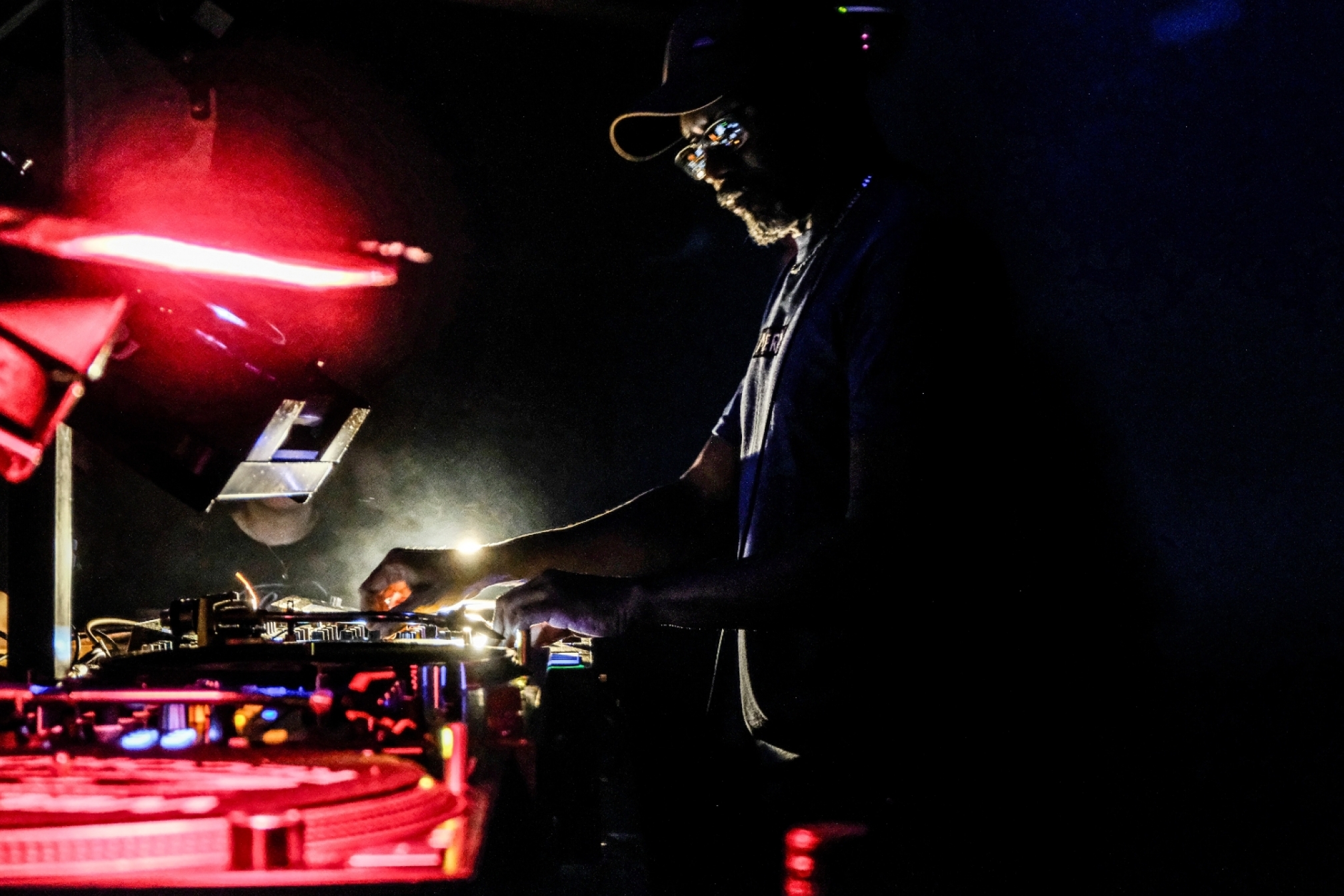
You’re a DJ and a producer. Do you find a sanctity in production or in the studio?
Production is what I do. DJing is something that's in my skill set. So that's where people get messed up.
Somebody like Frankie Knuckles. Their goal is to be a DJ. I'm a musician first of all. So, I'm not trying to be anything. I already am something. And I'm just kind of just applying that in this kind of a genre, in an arena.
With the changes that we've had in the way that we consume music from physical formats and the radio to the internet and digital files, do you think audiences' relationships with music have changed?
Well, we just discussed the numbers. You can't have a relationship with 120,000 people. So that kind of just messes everything up. The opportunity is there for everybody, but is everything just convoluted at the end of the day? Hundreds of thousands of things, maybe one or two, only get noticed. So that's the hardest part about the digital world. With vinyl, CDs, whatever it is, you don't have a budget that's going to stop you at a certain point from how many you buy.
With digital; some buy, some just get. There's no ceiling on it.
People literally walk around bragging about how many files they have. They’re getting self-esteem out of something like that. I got X amount of files. You never listen to them all. You’re bragging. I find people getting twisted self-esteem out of things that have nothing to do with it.
I got files. Somebody else made all those files. You didn't make anything. So why are you bragging about it? It's like a pointless endeavor that makes you look needy at the end of the day. “Pay attention to me.” “I'm relevant.” “I got all these files.”
How did you get them is my question. How did you acquire them? Did you patronise these people? Or did you literally just steal from all of them? Because there's one or another and there's really no in-between.
As a DJ or performer, do you think the format matters in the way that you play the music or your relationship to the music you play?
Someone who knows how to present well can use any media and do it.
We've seen guys like Mancuso who never even blend records together, but still legend in the scene.
So, it just all matters in the presentation, the quality of the material you're presenting before people, not just throwing junk at people and expecting them to go get the Yahoo. I don't know; it's just kind of taking it and making magic out of it. Like guys like Larry LeVan always did. They were limited as far as what they had, probably just vinyl at that time and maybe some reel-to-reel stuff. But they still made magic with it.
And guys like Ron Hardy and Frankie Knuckles and Tony Humphries made magic with what you had. So, I get a lot of people kind of had the disclaimer, oh if it wasn't you, it sounds like you're kind of making an excuse.
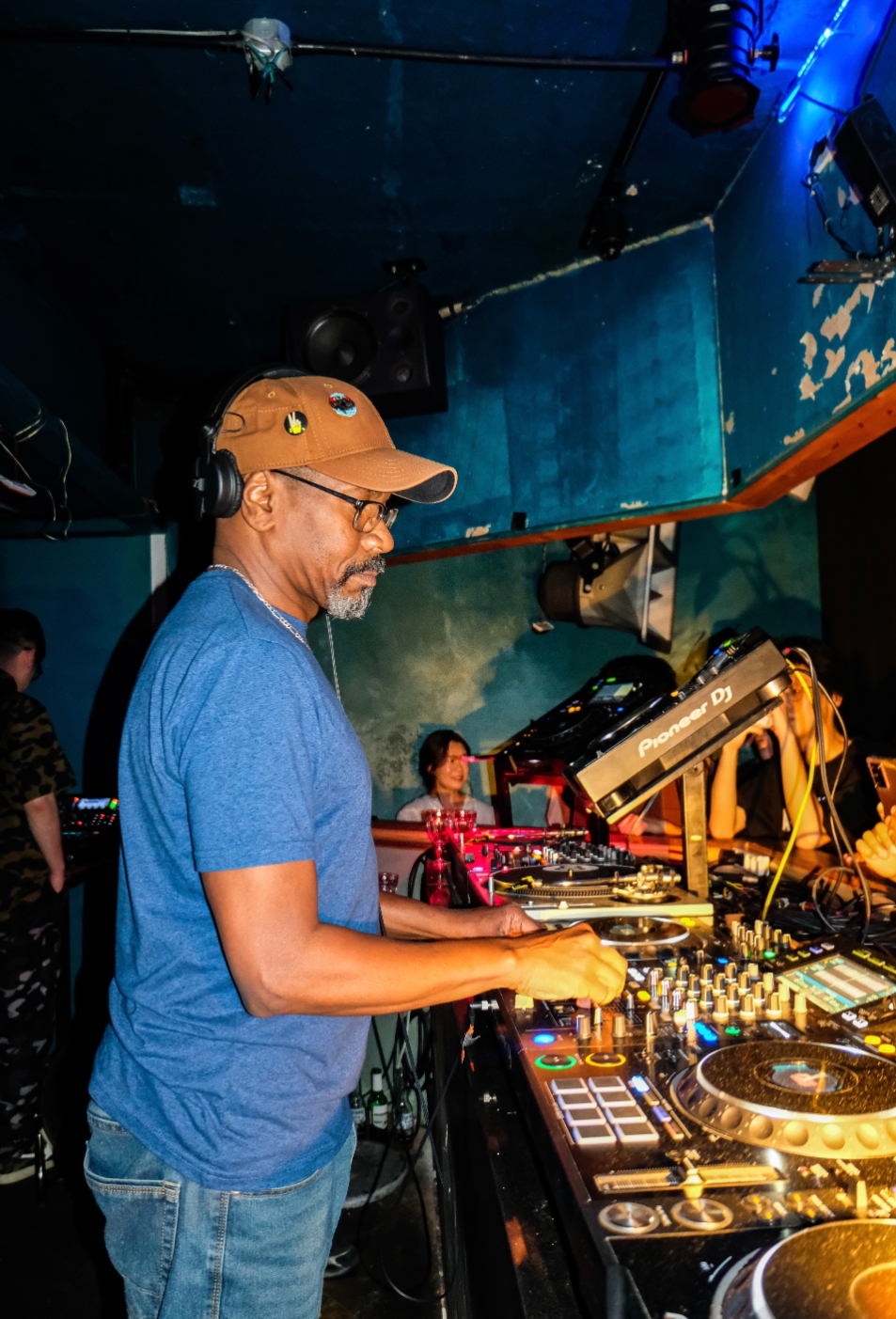
With the internet, people have so much choice. And especially for dance music, people go to internet radio or YouTube. Do you think that is changing the industry for DJs and for dance music?
I don't know if I could kind of say that with any kind of evidence behind it or anything. But again, if the people are presenting well, hopefully it should help. But if they're presenting the most terrible examples of the style, that's detrimental.
It's not anything that has to do with me. It's its own physics.
It starts to happen once you release a record to the world. People receive it or they reject it for whatever reasons it is. It's different for all of the 8 billion people on the planet. It's going to be a different reason for the same song.
I like, I don't like. I hear people say, I used to like. That's an interesting one.
It might say something about your own personality and stability. You used to like it and you don't like it anymore. What's up with that? Like me saying I don't like The Stylistics anymore. I don't like Aretha Franklin anymore just because the calendar has changed. She's passed away. I still love the music.
Factors like cost and distribution networks contribute to the popularity of house music being released as EPs rather than LPs. How do you feel about the house music LP as someone who's made so many?
I feel my LPs doesn't change LPs. Some people may not have enough content to put together an LP. They only have enough things they feel strong to fill an EP up. Is everybody actually able to make albums because they're able to do some tracks on their DAW and have something that actually feels like a project instead of just a collection of random tracks that you just assembled together?
Something like ‘Sceneries not Songs’.
‘Alien,’ I kind of do the concepts. ‘Cerebral Hemispheres.’ I come from the whole Quincy Jones, Giorgio Moroder, full-length things, epic-length stuff.
Everybody just doesn't have the ability to do that. Folks may just be trying to be DJs. Everybody's not a composer because they're DJs. Everybody's not a producer because they're DJs.
You can become all those things, I don't think it happens in one day. You can’t just snap your fingers; it takes a long time. Some of my time just wasn't seen when I was in bands and things like that. I was being groomed without even ever thinking about producing a record. When I attempted to do it, I was able to do it because I had been sitting in the band environment and absorbing what music is made of forever since I was 15 years old. I've been in the band environment. There's the bass, there's the drums, there's keyboards…there's all this stuff.
Everybody kind of just doesn't automatically know that or kind of instinctually put that together or just even recognize it in other people's songs because it's a core set of instruments. Pretty much a lot of stuff, the bass, drums, some guitar, keyboards. Some people have no experience with any of those things.
So, to expect them to put an album together that's kind of a big undertaking. They could just be purely a DJ; “I want to spin the records”.
I know you use a release as a device for people to kind of notice them. Their name circulates around in a way that it doesn't. Your physical body can’t go to this side of town, that side of town and everything else prior to more people and more territories discovering and becoming interested.
What kind of advice would you give to someone who is just beginning their journey as a producer
Learn something about music. Don't show up with nothing in your skill set.
Don't just show up with a vivid imagination. Nobody can sell a vivid imagination. They can sell a hot record. They can sell your thought, your concept. You have to be able to flesh it out. Verbalise it in a musical way. Make it hot as possible. Going against those a hundred and something thousand that’s coming out.
House music has travelled all around the world. I feel like every culture, they have their own spin on house music. Do you think that house music is something that is ‘from Chicago?’
It sprang out of Chicago. It's not me thinking it. That's what happened. My thinking doesn't organize the world around us. It came from where it came from. What happens when it goes to other communities, that's up to those communities. They have no control over the world. Hopefully they do something honourable with it. It doesn't just make it where we started out at the place where everybody said, oh, “this will never work.” “It'll never last.”
It's just like hip hop; blah, blah, blah. It's the same old story. Forty years later, it's still here. Hopefully they do something that keeps it here forty more years instead of everybody saying, that's so terrible. That turns to four years and it just disappears. They have to upkeep it. With quality releases.
Releases are good. Quality releases.
When you buy something yourself. You want to be able to listen to it for a long time. Not wish you had bought something else at the store the same evening when you get home and listen to it. Cause I know I've had that happen myself. I could have had a VA. Nobody likes that when you spend your hard earned money.
People in Asia have a little tiny apartment and they have some records. They obviously treasure the ones that they do have. They pick them out quite carefully.
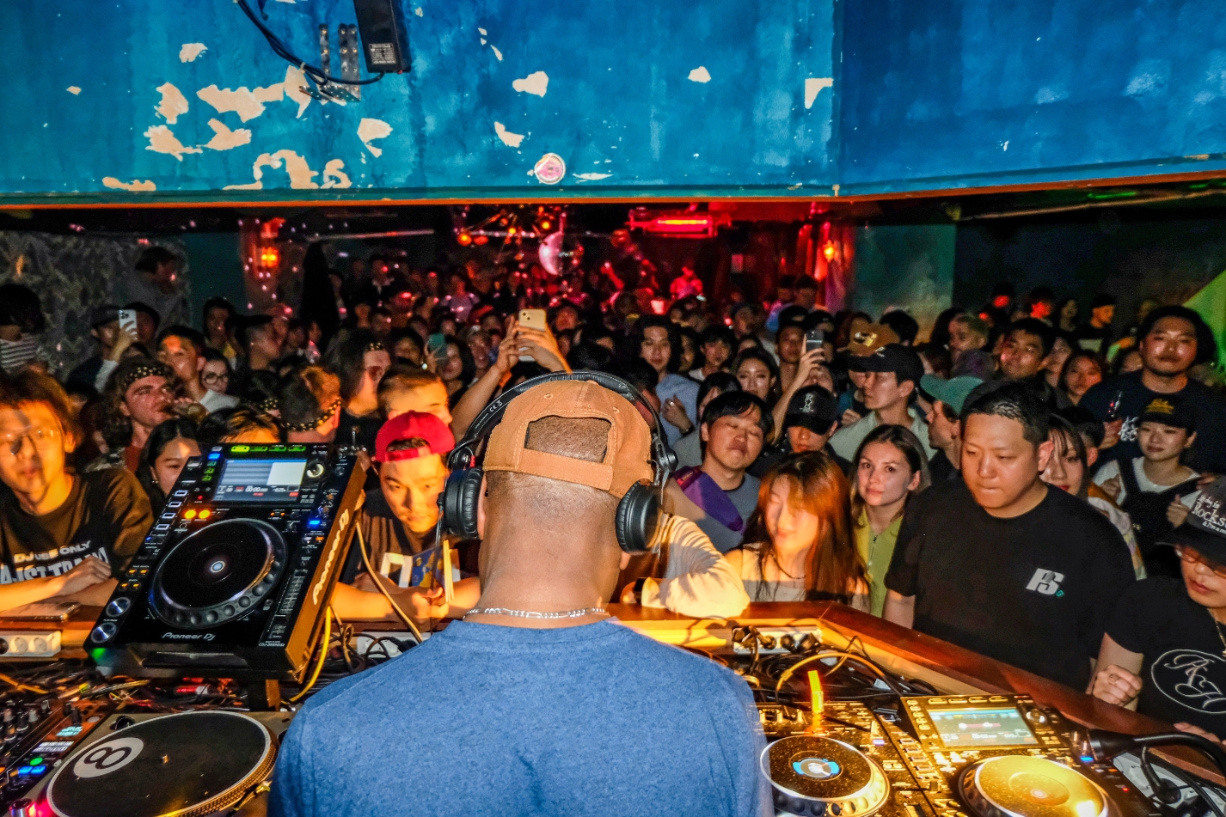
What’s a piece of advice that you wish you had known when you were younger?
As far as the creativity part of it, I think I was kind of fully set up. My mom and her sister singing. They played piano. I had all these musicians around me. I was kind of automatically, you know, kids tend to do what they see their parents doing. You're tapping on the piano. That's what I said earlier. The advice is to learn something about music.
Really learn something about music like Carlos Santana. Not like Frankie Knuckles music. The actual person who's making the music. The hands-on person. That's what you do. I don't think you could ever ultimately take musicians out of music because it's just going to be a bland, homogenised thing at the end of the day. Musicians are the ones who can take the stuff and manipulate it. In a way that makes musical sense and is musically competent. I just threw it together and things are in 21 different keys while we're listening to it. It's a nightmare.
I always encourage people but be for real at the same time. I wouldn't buy that. I wouldn't even allow it to play long before I kind of change to something that's more appealing.
The idea of taking musicians out of music… How do you feel about AI?
They’ll never take a musicians’ place. Just like with writing. I've seen AI writing. It's so wordy. It always goes off topic. It always says things that are inappropriate. It's just an algorithm. It's doing what an algorithm does. Just arbitrarily grabs stuff. That's what it is.
Do you have any non-musical passions or hobbies that you like to do?
Art was my first creativity. Drawing. Painting. Making stuff with wood. My dad and his brother are carpenters. We do stuff like that. Movies. Television. All kind of normal stuff. Food. Just the normal people stuff. I'm not from another planet. I just do something different for my livelihood. I'm just as human as anybody else. I like the same old stuff. Going to movies. Hanging with friends.
Do you still get time to do those things?
Not a lot. I actually run a label. That takes time. I pretty much handle all the productions. What you're hearing is 90% me or more on every track. Chances are I've engineered the stuff. I may have sung on it. All that other stuff. Each one of those are all different hats. If you're wearing that many hats, you don't get to just hang out that much. A lot of the hats are just on the floor if you're hanging out.
It's a commitment. It's not easy. It's not for everybody. Because everybody doesn’t run a label.
A lot of people are DJs. A lot of people are producers. A lot of people don't operate labels.
It's a totally different world. Everybody is maybe not willing or not able to make that investment. You have to be the label operator and that responsibility as well. Things have to be ‘of quality.’
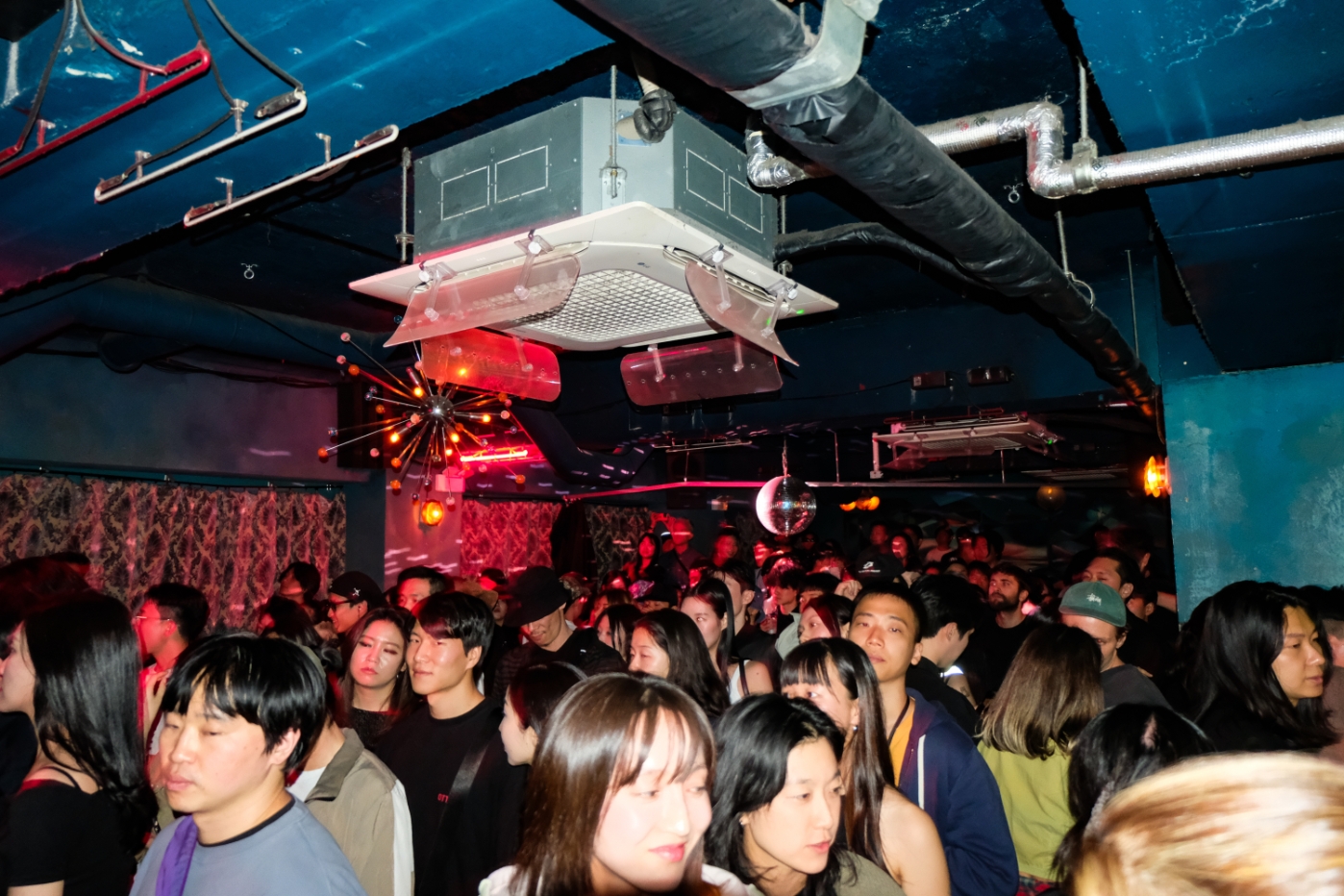
You’ve spoken about leaving major labels and starting your own label…
I started my own label first. I didn't leave them to do what I was doing first. That's why it's called “Alleviated.” The steps are Alleviated. You have to go through an A&R person, and all that other stuff. The steps are alleviated. I did work with major labels. I'm there so I can learn what I need to learn. You find out they don't know anything that we don't know. They're just working with a different budget. They don't know anything different. They don't have superhuman knowledge. They're making a guess. They're using the record company's pocketbook. My guess has to be more accurate because I'm using my own pocketbook. The employees at Sony don't go into their own pocket to fill Beyoncé out.
Again, different levels of commitment. You have a job and if Sony lets you go, you'll go to another job. It's still connected in a way and disconnected at the same time. Same distance, toe in the water, not body in the water.
For young artists, do you think there's any advantage to these major labels these days?
I don't really know. Depending on the style of music. If you're doing stuff like Beyoncé, Nicki Minaj, but if you're doing something that major labels aren't interested in to begin with, there's always been this “you're nearby and we'll get around to you when we feel like it attitude” since the days of disco.
It's not new. I just think it's a less relevant style and definitely less relevant as far as the amount of money they're going to be able to rake in very quickly. It's going to take some more work.
As far as the future, would there be any artists that you would love to collaborate with?
I can't say I've had the time to put my brain on something like that.
I used to have immediate answers back in the day, like Phyllis Hyman and Anita Baker.
Already we're going in a way that's confusing to a lot of people. There's a lot of singers out there I like, but I can't say that you just automatically assumed it because you like them that your style would be a good fit for them.
So that's the thing you don't know. Maybe I don't dwell on those kind of things that much. Maybe if something comes around, then you have the reason to stop and take stock and that kind of thing. But outside, it might be daydreaming in the construct of me trying to operate a label and do the productions and all that kind of stuff.
So what kind of releases do you have planned for the future? Are you working on anything?
Yeah, we're working on a new album. Hopefully decent quality projects that people can kind of check out and hope they like them.
You say you kind of work through themes for your albums. Is there a particular theme for your new music that you're making?
There’s no theme for this one. Sometimes I'll get a theme suggested to me, like Alien. My business manager just gave me that title and I said, I like that. It doesn't happen all the time.
Most of the time I'll get song kits, like some finalists for tracks I think will kind of fit together as a package. And then those… What gets spoken to me from that unit of tracks is kind of what I'll develop into the title. Well, I just have to feel the music to make the title. I've only done the title first and make the music… I did that one time with ‘Alien’.
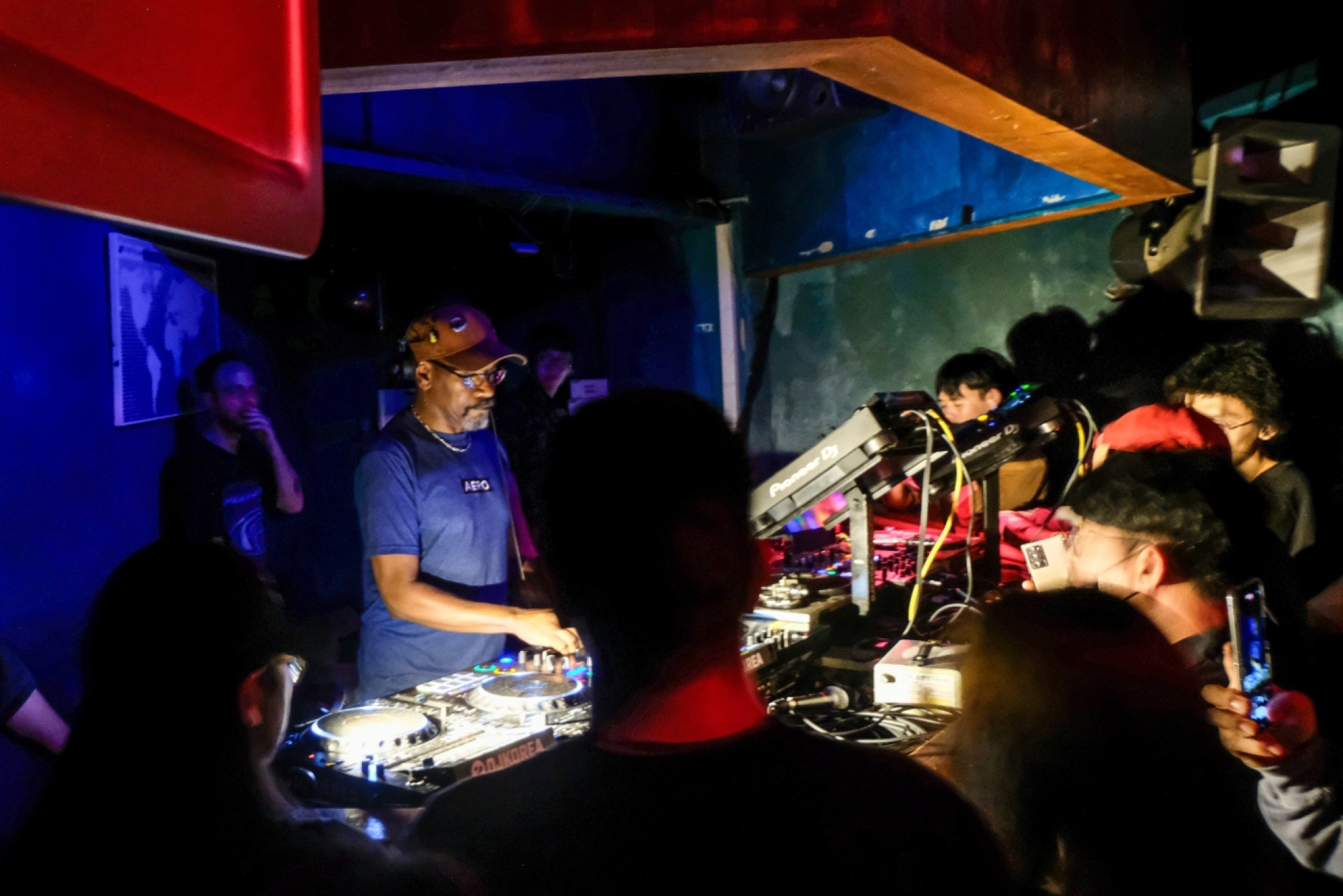
Do you still have trouble finding titles for music?
Yeah, all the time. My manager, he picked ‘Cerebral Hemispheres’, he picked ‘Around the Sun.’ I didn't know which one because you have a different kind of investment where I'm listening to it in a different way so I need a fresh set of ears. They're just listening to the selections and they don't hear the labour behind it, they just hear the beauty.
There's more dynamics behind what I'm listening to because I know what went into it. And which ones were tougher to get together, which ones just flowed together very easily.
When you're making music, you spend a lot of time listening to the same song, maybe over and over and over again. How does that affect your workflow, or how do you get out of that funk?
Well, hopefully you can have the insight to know when to step away. It's again just taking up too much time, it's dragging along.
It actually gets harder. You start liking the song less, so maybe you start getting less gentle with doing it, more mean in your attitude about it. Or just give up on it completely. When you run into aggravation about music, that's not a good sign.
Maybe sit you back here and maybe come around to you later and go with some other things that are just flowing a little better for now. You don't want to introduce aggravation to it.
I think some things can be instinctually felt, because you get a lot of people in clubs where you're in this loud club, bang, bang, bang, and people have got their eyes closed. They're transported to another place, and that's what you want.
You want the magic to be in the music.
There are sounds, yes, but something else is beyond words that people connect with in a strong way. If they're still listening to the album 10 years, 20 years, 30 years later, they're really connected with it, and they're getting some kind of therapeutic value out of it.
How do you still stay so excited about making music?
I can't say I'm excited every day. I'd just be lying to you.
It's work, and it's laborious, like any other real work, and it's laborious on this, which is maybe worse than your limbs, arms and legs, lifting heavy metal things and what have you. Some people literally break down from the pressure of doing that and trying to find that space where they connect with the listener.
Are you still living in Memphis?
I'm still there, and it's been close, probably 25 years. I think it speaks for itself. I'd be gone if it wasn't.
It’s also a big music town as well, right?
Music history.
In the current day, I'm not seeing a lot that's knocking me out. I'm hoping for the best with that. I hope some good quality people come along instead of ones who don't have anything to say. The honest thing, I'm not trying to be tough about it, but any occupation you go into, you have to know something about it.
Some people just come and get it. Remember how people used to just jump into sports? It's an easy thing to do. I can make quick money, get quick recognition, and sometimes it's even there for the affirmation. “I'm not doing music to do music. I'm doing music to get affirmation.”
So, it's a different psychological state that some people are approaching it from. I don't know. That could really be dangerous, though, dealing with affirmation, and you can reject it. You’re kind of psychologically fragile. You don't want to put your psyche in the hands of other people. I don't know if that's a good idea. It would be real critical. You think they're going to be very nice.
It's a dog-eat-dog world.
They're not trying to be nice to you just for the sake of being nice. If the stuff is hot they’ll be nice to you. Who knows if it starts to dip. Again, you're emotionally fragile. I know several people who are bipolar.
Like Phyllis Hyman and her ups and downs… It drives you to some crazy things like it did with her.
Is there anything else that you'd like to add or like to say?
Hopefully, if people are reading this, understand it as I mean it. I’m not just trying to be hard-nosed about stuff. Come on; you've got to put your best foot forward in any endeavour.
Themba Searles is a freelance writer for Mixmag Asia, follow him on Instagram.


